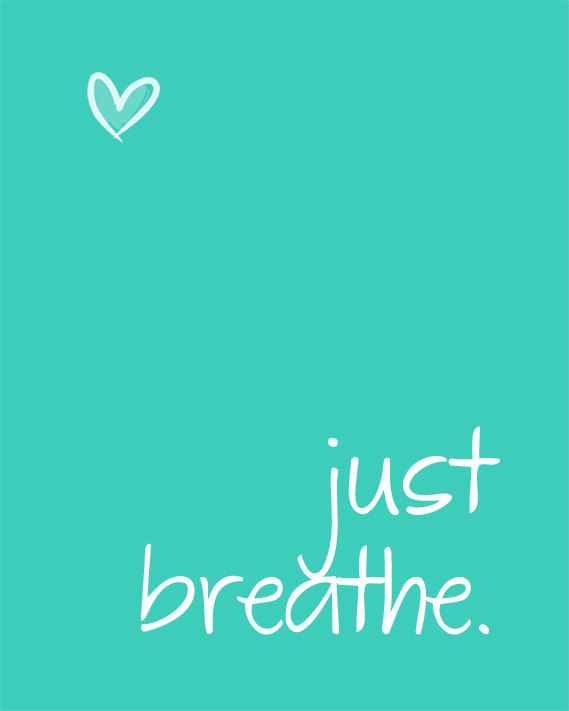|
Binge sitting is bad for your health
A new
study
published in Annals of Internal Medicine gives warning that excessive, sedentary behaviors put people in danger of early death. Compromised cardiovascular health is among the health risks the study says is hastened by prolonged inactivity.
What tips would you offer those who, because of their job, sit for extended periods of time?
Unfortunately, we do not have specific guidelines for limiting the negative effects of sedentary time. Some studies mention moving every 30 minutes. However, if this is impractical I would recommend getting up or moving for five to 10 minutes every hour. If you cannot get up from a meeting, try fidgeting with periodic leg movement. Additionally, try some of the following strategies to move more during the day.
- Use a smaller water bottle so you can get up more often to fill it.
- Set an alarm on your phone that reminds you to take a quick break or stand up. Several apps and devices can be programmed to alarm you that you have been sitting too long.
- Find examples of "deskercise" by typing "exercises to do at your desk" into your search engine. Try doing a few every hour.
- Move your feet up and down while in a chair.
Read More! |
|
25 Ways to Sh
ow Gratitude
- Keep a gratitude journal.
Expressing appreciation doesn't always have to be done person to person. Listing all your blessings on paper not only forces you to practice gratitude, but it's also a great reference to look back on in times of struggle.
This is an obvious one, but a friendly reminder never hurts! Always express gratitude for even the smallest of acts.
For more ways to practice gratitude click HERE.
|

|
|
|
8 Powerful Steps to Self-Love
Being kind to yourself helps you bounce back, live healthier, and stay on track.
Self-compassion is a way of relating to yourself that does not involve harshly judging or punishing yourself for every mistake you make, or every time someone does better than you. Research on self-compassion shows that it is associated with:
The 3 Facets of Self-Compassion
Self-compassion has three separate but related aspects:
1.
Mindfulness: Having an open, curious, non-judging attitude; not over identifying with negative stories about the self.
2.
Self-kindness: Treating yourself kindly, rather than harshly. Extending the same care and support to yourself that you would to a good friend or loved one.
3.
Common humanity: Allowing yourself to be human, to make mistakes and learn from them. Knowing that as humans we are not perfect, nor should we be expected to
act flawlessly.
To become more self-compassionate yourself, try to follow these steps:
1. Recognize that you are experiencing emotional distress or mental suffering.
2. Accept that the feeling is there.
3. Imagine what you might feel if you saw a loved one experiencing this feeling.
4. Challenge your negative story about yourself.
5. Think about how everybody messes up sometimes.
6. Decide what it would take to
forgive yourself.
7. Use self-talk to encourage yourself.
|
|
Why You Should Take a Relaxing Lunch Break
According to a new study, we concentrate better and feel less stressed when we purposefully detach from work and enjoy a real break.

I know the importance of breaks in a workday.
The science clearly shows that taking a cognitive timeout helps us to work better and feel better, and personal experience confirms that.
But, still...
Like many Americans, I sometimes find myself working right through lunch. I get lost in my work, or I think, Hey, if I just finish this project, it will be out of my hair and then I can relax.
But
a newly published study suggests this is the wrong approach. It turns out that taking a deliberate break from work with a short walk in the park or a bit of mindful relaxation can have powerful effects on our end-of-day concentration, stress, and fatigue.
|
|
Richmond Folk Festival
October 13th-15th
If you can only go to one festival all year, this has to be under consideration. Some say it's the festival in Richmond.
The Richmond Folk Festival
brings together over 200,000 people to celebrate along the James at Brown's Island. As the east coast's largest folk festival, it's got an impressive lineup of performers, food and activities. Don't miss it!

|
|
|
Don't Give Up Hope in the Midst of Devastating Events
Despite the fact there's so much going on in the world right now, Ellen still believes there's a lot more good in the world than bad. Take a look back at these everyday heroes who have helped make the world a better place.
|

|
|
|
|
6 Steps to Take to Wind Down For a Good Night's Sleep
1. Screens Off: Blue light from your devices can disrupt circadian and melatonin rhythms, which basically means your body thinks it's daytime. A lot of guidelines recommend turning off screens one hour before bed, but if you can't manage that, try to turn off your electronics at least 20 minutes before your head hits the pillow.
2. Bath:
When you come out of warm water into a cooler bedroom, the drop in your body temperature
sends signals to your body
that it's time to rest. You could add essential oils that are said to have sleep-inducing properties, like lavender.
3. Book:
Basically, if you still need something to help you wind down once you're under the sheets, you can try anything that doesn't involve a screen.
4. Notes:
In that quiet time before sleep, my brain often fills with reminders. Keep a pen and notepad by the bed to scribble down reminders the old-fashioned way, without the use of a phone.
5. Stretch: If you're
cramped up at a desk for most of the day, and not at all good about taking regular stretch breaks during daylight hours. You can make up for it a bit at bedtime by really stretching out your legs and shoulders.
6. Breathe: T
ry breathing meditation. If your mind wanders, try some
techniques to maintain focus
, like visualizing your thoughts floating past like clouds, or focusing on the subtle sensation of breath at the tip of the nostrils, or bringing your attention to each part of your body in turn
|
|
Who wouldn't love a fridge and freezer full of meals they can simply whip out and reheat on the fly? We've gathered our favorite meal prep ideas from eggy muffins to chicken freezer packs. Suddenly cooking at home doesn't seem like such a laborious chore.
Breakfast: Egg Muffins.
If homemade omelets are out of the question, rely on
cheesy egg muffins, which are packed with veggies and can be reheated in the microwave in seconds.
Anytime: Frozen Burritos.
Store-bought frozen burritos can be really expensive, but the good news is
you can make them homemade with all of your favorite fixings.
Lunch: Microwaveable Meals.
Prep and pack
microwaveable meals in tupperware or mason jars, and either cook in the container or transfer to a mug first.
Dinner: Spiralized Noodles.
Dinner: Freezer Chicken Bags.
Read more!
|
 |
|
|